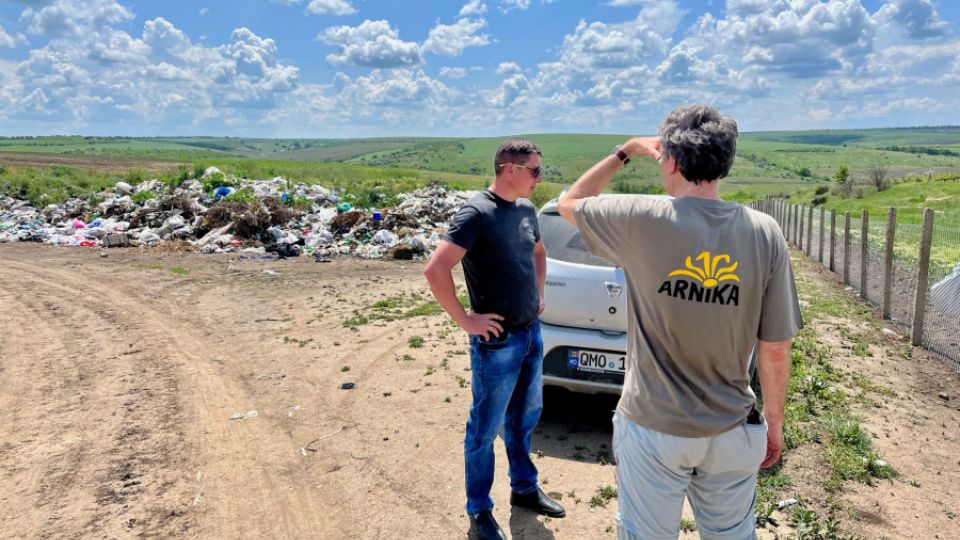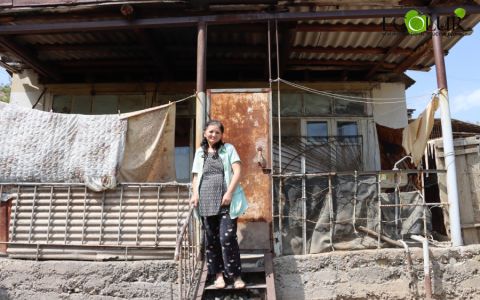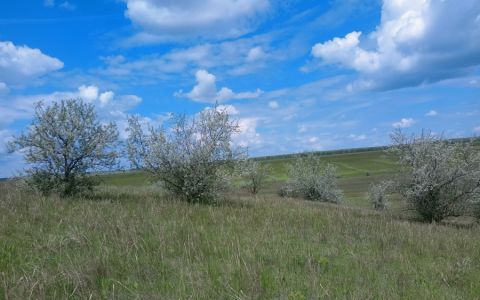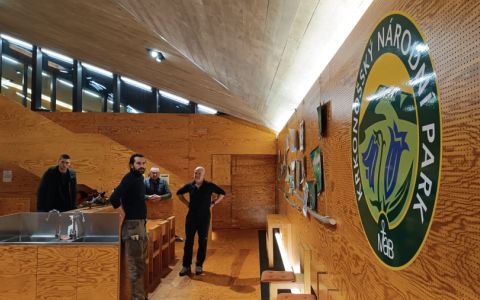This time, we had two special guests with us in spring Moldova - documentary filmmaker Martin Marek with his camera and Petr Roth, an expert in nature conservation with experience in public administration. The documentary movie based on our trip will be broadcasted on Czech Television in September.
Wandering through national parks
Our May trip aimed to observe how managing selected protected areas in Moldova works. At the same time, we were able to see how our joint activities with the local organization Biotica are progressing. Dr. Roth, a former deputy at the Ministry of the Environment of the Czech Republic, came with us as an independent expert.
We met with many representatives of the state administration, such as the director of the Orhei Vechi Reserve, where thousands of tourists go every year to see the famous rock monastery and the beautiful bends of the picturesque meandering Răut River. Another important site we visited was the Codri Reserve, home to the most extensive deciduous forest in this Eastern European country's otherwise heavily deforested cultural landscape. “We met with a park board representative in the Lower Dniester National Park, which was only established this year. We wanted to hear how the locals are getting on with the park and what challenges they face. Particularly as our partners from Biotica were instrumental in establishing the park and its positive reception by people from the surrounding villages. We continue to strive to establish a functional administration of the national park, including a corps of volunteer rangers, as such a project is a long run,” says Pavel Pinkava, the project coordinator. We have already written here about the working groups, which aim to improve citizen participation in decision-making and prevent potential disputes regarding the impact of the national park on local communities.
Actions speak louder than words
We also visited a working group meeting in the village of Talmaza this time. Talmaza is one of the most progressive communities in the area, managing to attract large amounts of international donor funding for infrastructure development, and it was this community that initiated the creation of the NP. In practice, we saw that the community is genuinely interested in being involved in decisions about the future spatial development of their community. In fact, such a procedure is in line with the requirements of the Aarhus Convention and also helps to prevent future conflicts between different legitimate interests, according to our experience.
Our journey also led to the municipalities of Rascaieti, Cioburciu and Copanca. All three serve as examples of good practice. In Rascaieti, the improvement of the drinking water source and its immediate surroundings in the center of the village was completed at the turn of the year. This has helped to make the area more attractive as a meeting place for locals. In Cioburcio, on the other hand, in January, the citizens completed the treatment of a landfill located behind the village between the fields. They used heavy machinery to gather the weather-blown piles of waste into a designated area, which was then fenced off, and, with the help of the villagers, a “green fence” was planted - a belt of acacia and ash trees. These improvements will prevent the landfill from "spilling" into the surrounding area in the future so that the rubbish will no longer fly freely in the countryside.
Kindergarten as a community center
We also took a Czech TV camera to the village of Copanca, where last year we supported improving the area around the kindergarten. Parents and teachers planted trees and shrubs in front of the kindergarten and around the playground, which we equipped with swings and climbing frames. The school serves as an educational facility in the village and a social center for local residents. The municipality's leaders are undoubtedly aware of this, as they have invested significant resources in renovating the building, including installing solar panels for heating water.
At the end of our mission, a press conference was held to launch an information campaign to explain to the public the importance of planting green belts, i.e., trees and shrubs, along the fields. This measure is more than important in Moldova's predominantly agricultural landscape, as it helps to retain water in the soil and prevent its degradation, which are key environmental challenges for the country's future.
The Czech Ministry of Foreign affairs supported our trip and the whole project under the Transformation Cooperation Programme.








